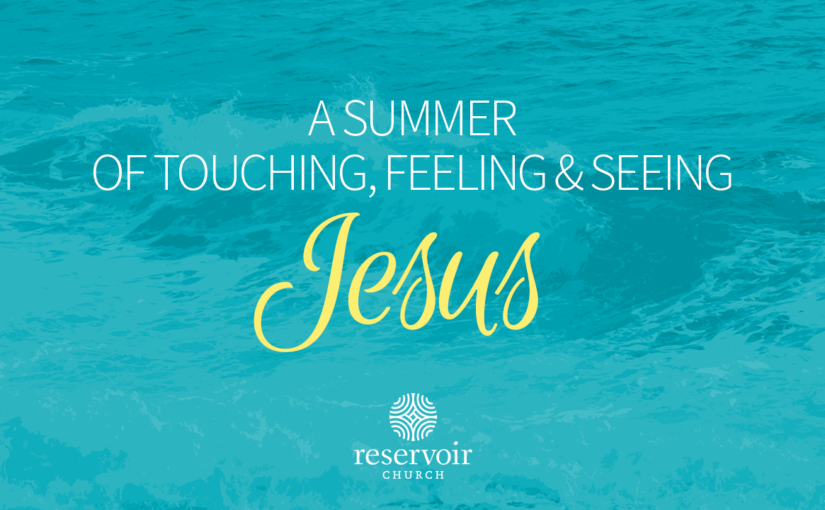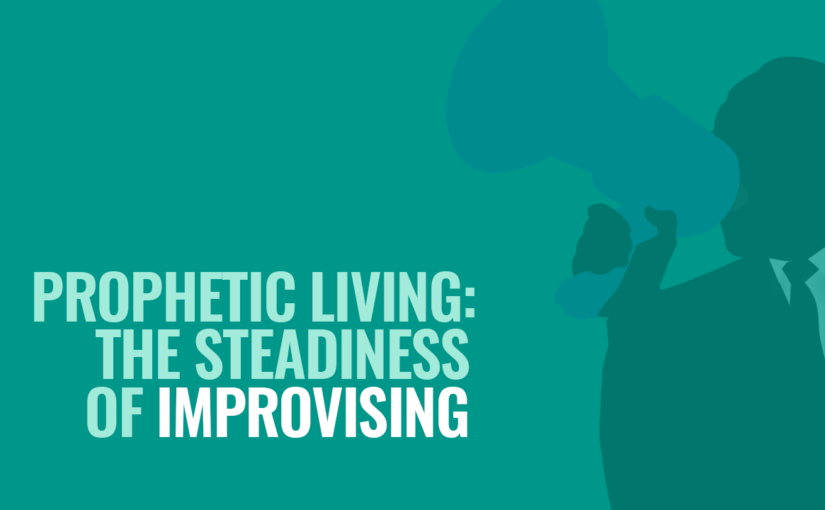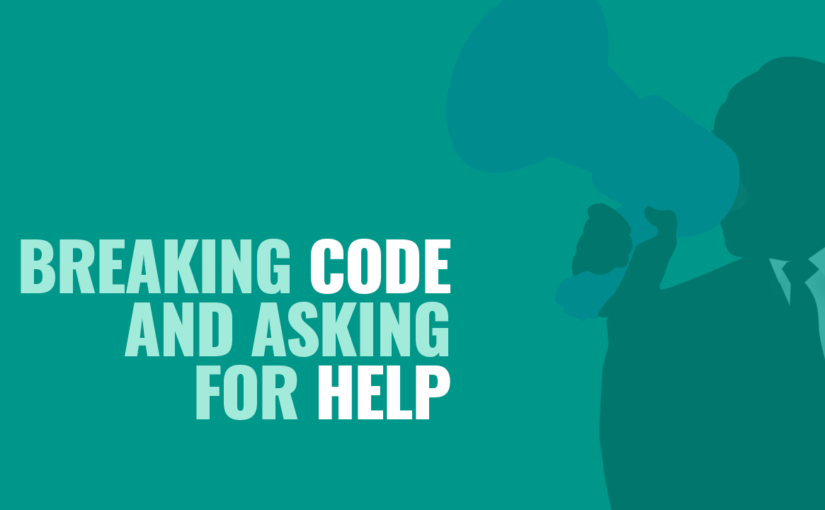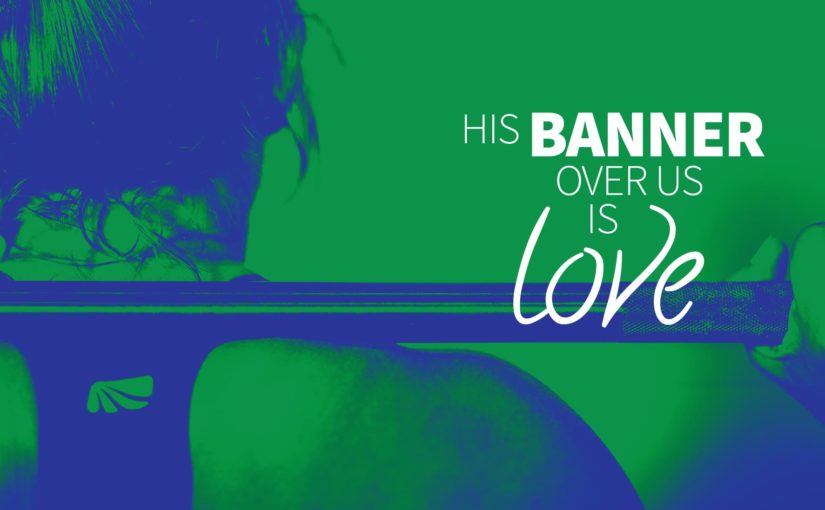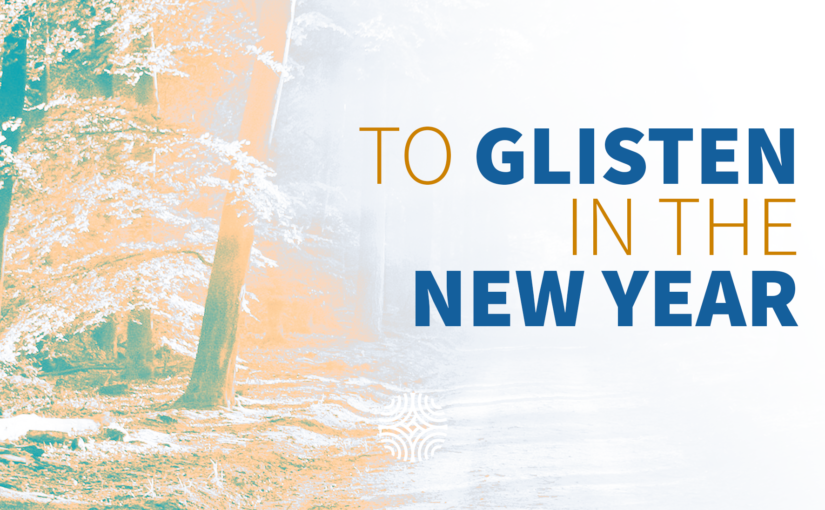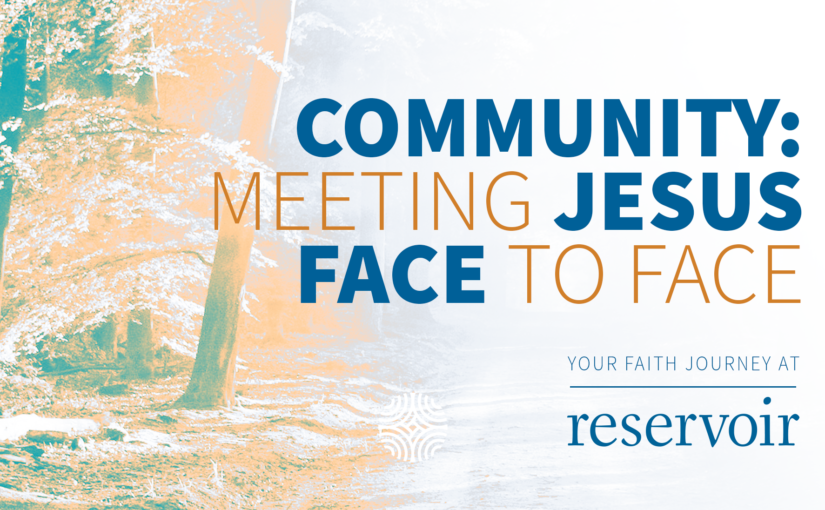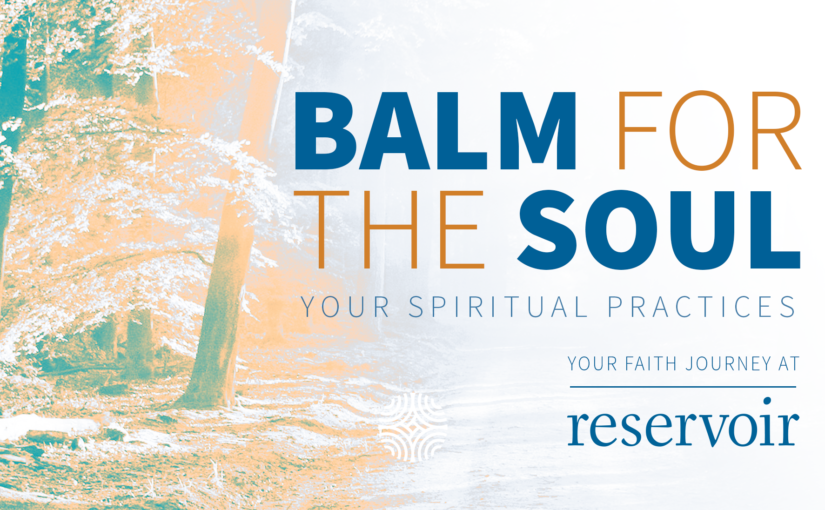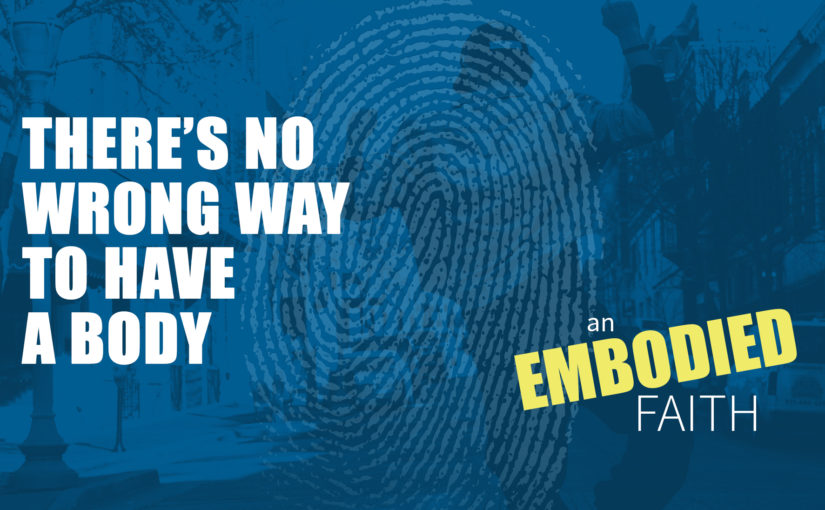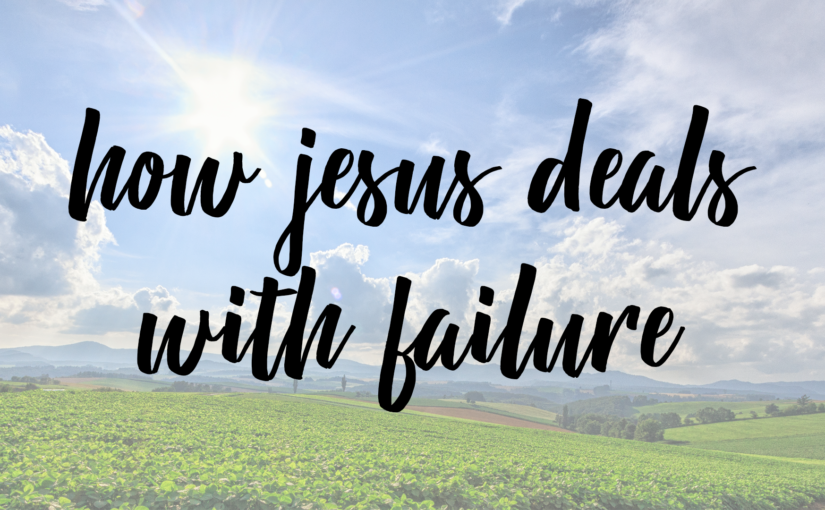Good morning! What a joy it is to be here with all of you today, and what a joy it is to be together!
We are in full summer mode here at Reservoir marked by this 10:30am service and also from a preaching perspective we also shift a little bit for the summer. We organize less around a topic based 6-8 week sermon series, but instead preach out of a grab bag of scriptures or what many Christian traditions call the Lectionary — an assigned assortment of readings for each day. And last week Pastor Lydia kicked us off with this, and preached from the scriptures of Galatians. And I’ll follow today with some continued insights from Paul, the author of Galatians, that he offered to early churches, and that through the inspired work of the Holy Spirit are still very potent for us today.
To Cherish — Soccer Nights
First though – I want to pause and give thanks to some folks in the room for the experience of Soccer Nights! If you’ve been around even a tiny bit here at Reservoir – you’ve probably heard us mention this free soccer camp that we offer for 200 or so kids in the greater Cambridge area. We just concluded on Friday our 12th year of soccer nights!
And I was just struck again by the enormity of what it is to pull off a feat of organizing 200 kiddos, with equipment and snacks and demonstrating drills, CORI checks, and hospitality tables and communication, and little kids entertainment and logistics and hosting side events like volunteer soccer games – or moms soccer games and icecream and organizing crew and all the while not losing one kid!
Is just heroic, and it’s due in great measure to the 100 or so volunteers that helped Soccer Nights be a place of beauty, of safety, and to really showcase the vitality/richness and spirit of humanity coming together.
This is my 2nd year of preaching at the end of Soccer Nights. I’m so grateful for that! I realized that it also coincides with my kids first full week of no school. Where each year, I purposefully do not sign them up for any structured programming to give them a little break. I think I imagine such a beautiful, peaceful scene of us being alongside one another, where my kids read book upon book upon meaningful, life-enriching book, and I pound out great work and perhaps a content-rich sermon.
And then I realize, “Oh my goodness that is completely delusional!” That has never happened! I don’t know why I don’t go back into the resources of my memories to grab concrete data there.
Don’t get me wrong – it was still lovely time with my kids – just totally different than that picture!
So as the week ticked on this past week, I got a little nervous as to how exactly I would find at least a couple of hours for words to hit the page in a slightly coherent way!
And about mid week, right before I walked on the field, I was like alright Jesus we need to talk about this, and I felt pretty quickly a nudge from him to just relax a little (not in a condescending way – but just an invitation to relax INTO God).
As I walked onto the field, Coach Michaiah (Pastor Michaiah to many of you), led us in warm-ups and stretches.
She instructed us to do this cross-arm stretch..
And as I did, I looked up at the sky, which was brilliant blue, and the myriad of cloud formations, and I felt a surge of peace.
And then Coach Michaiah said, “give yourself a little hug”…
And I totally got teary……it felt like a physical invitation from God, “Do you accept the love I have for you, right now? ALL the LOVE I have for you”.
With this rush of God’s love – shifted something in me and allowed me to relax and be present to the time with my kids and to the kids on my team at soccer nights, and to release worry about content for my kids entertainment in their days, or for a sermon.
And it was such a simple moment, but a powerful one that felt like God’s message to me was: “Embody the gospel, Ivy.” Like, “take this seriously, keep your eyes on what the good news really entails — you know, the content of your days, of your life – of sermons – is not an assignment or an obligation to fulfill. The content is found in being present, through your lived experience of touching, feeling and seeing me through the people that you encounter in your days. That’s the simple and potent gospel right there.”
And so this morning, I invite you into a simple reflection throughout this time – of where you will touch, feel and see Jesus this summer.
My Grandmother, Love, and Lotion
My experience of Soccer Nights opened up for me a lot of memories of the centrality of what it is to love and LIVE with Jesus — why HIS story actually matters to me.
For 2 summers in my high school years, I spent nights at my grandmother’s camp on a pond, roughly 2 miles or so from my house. And from my earliest memory of her, she was always in a wheelchair. She had Multiple Sclerosis – and in my high school years, the disease had progressed enough that she couldn’t use her arms or hands, so independent movement wasn’t on the table for her.
I spent the nights with her to assure her that someone else could help, should she need it. I made sure all the electrical appliances were unplugged, the coffee maker, the toaster – her fear of being caught in a fire was paramount. And on some mornings, after the nursing aide would come in and help her into her wheelchair, I would push her down the front ramp of the house, up to this tiny patch of sun – that broke through the cover of these tall, pine trees.
She’d delight in the warmth of the sun, turning her face upward. And I’d sit alongside in a chair, making braided chains out of pine needles — a pretty peaceful and serene setting, but what I felt was a lot of dissonance. Internally I was wondering at what point it would be less rude for me to leave. 10 minutes? 30 minutes? I remember being wracked with impatience and wanting to get to a friends house, and to be honest a little angry about it all.
On one of those mornings where I hadn’t retreated yet, she asked me if I wouldn’t mind rubbing some lotion onto her legs.
And I remember internally freezing.
This ask — this specific display of need, this request for touch, for intimacy — made me feel embarrassed and entirely awkward. It was a distinct request that broke pattern from our usual way of relating, watching soap operas together, or sitting in the yard, or waiting for the nurse to come.
I knew it would shift our relationship, it would create a different connection, it would in fact be a display of love, and of deeper, tender care then had yet been evident.
And I didn’t know from where that vulnerability would come from within myself.
So I just kind of slathered some lotion on and rubbed it in really quickly and then took the bottle of lotion inside the camp.
Perhaps this resonates with some of you. Maybe there’s been someone you’ve known for a really long time with one particular lens, or one particular way of engaging.
But often something shifts, right? The full humanity of a person may start to break through, whether it’s in vulnerable need, or weakness, or a flaw you had never seen.
And there’s a new thing out there between you and this other person.
And to touch that, you will have to recognize the fullness of your own humanity. Which requires us to identify and accept that we too, have pain, weaknesses, wounding and fears.
This is so vulnerable because it gets us in touch with our deepest needs and desires, “What we’ve been looking for,” to be loved.
That is exactly what I had been looking for with my grandmother for so many years – LOVE. I could look at her and see a sign, in bright lights above her that said “GRANDMOTHER!” – and I knew I was supposed to feel something special but I didn’t know how to get there – how to experience that love with her.
In her request to rub moisturizer on her legs – I think I knew this was the way. But the admittance was hard, because to touch, to feel and to really see was so unknown and scary to me.
I want to start with a little warm-up scripture (it’s not in the lectionary), but one that I think opens up and holds together all of what we are thinking about today. So here it is on your program in John. We see John the Baptist, one who has been making way for Jesus — teaching and calling people close to listen to who Jesus is. Here in this scripture we see the long awaited Jesus appear on the scene:
John 1:35 -39 (NRSV)
35 The next day John again was standing with two of his disciples, 36 and as he watched Jesus walk by, he exclaimed, “Look, here is the Lamb of God!” 37 The two disciples heard him say this, and they followed Jesus. 38 When Jesus turned and saw them following, he said to them, “What are you looking for?” They said to him, “Rabbi” (which translated means Teacher), “where are you staying?” 39 He said to them, “Come and see.”
What an interesting question Jesus poses to these 2 disciples …
“What are you looking for?”
Do you know who you are following?
Why is that you following me?
I think this question of Jesus’ is him trying to suss out where the disciples hearts are at. Are they just looking for a sign that says “JESUS is HERE!” – or are they looking for relationship? They could have answered Jesus’ question “What are you looking for?”, by saying:
“Well, JESUS you are the Lamb of God!…John just said so!”
…and Jesus would have said, “and what are you looking for in that?”
“Well we know that the law was given through Moses; but it’s said that truth and grace would come through you”
…and Jesus would have said, “and what does that mean to you?”
“Well, you are the one and only Son,”
….”and WHY does that matter to you?”
“BECAUSE! You are the one who is himself God and is in closest relationship with the Father…You are, God’s Chosen One…..”
…and Jesus would have asked again, “and what does that mean for you? WHAT ARE YOU LOOKING FOR?”
It matters to Jesus what we are looking for, in Him, and he will ask us again and again!
This question of Jesus’ forges a relationship with these 2 disciples. It’s a question he asks us today that we all might answer in a myriad of ways. We all have our reasons for prioritizing a life with Jesus, of why it matters that we too, are part of the story, but maybe at the deepest baseline is the truth that we are ALL LOOKING for LOVE — for relationship where we can believe that we are loveable and capable of loving.
It is the question that envelopes and breaks open the disciples hearts to not just stand outside of Jesus and read a sign that says, “LOOK! The lamb of God” but one that draws them into a reflection of what they long for, what they desire with Him.
The first day of Soccer Nights this past week, I said to my team, Super Flash
“Hey guys WE ARE GOING TO SCRIMMAGE in a few minutes!!”
And before I could even finish the kids went wild — jumping, cheering, falling on the ground (and all over each other), with excitement… and then one kid boldly asked, “what does scrimmage mean?”
And then all the others say, “yah, what does that mean?”…
They knew they were suppose to love it – but hadn’t ever experienced it.
Oh, right! “Come and see” – “come and see” I’ll show you.
It is easy to flash words and sentiments without considering why it matters to us and how we are going to live it out:
“LOOK! HERE IS the LAMB of God”
“Look! Here is the kin-dom of God”
“Look I love Jesus”
“Look, here is our church that says “All here are welcome!”
They are hollow words, about God, about LOVE, without the backing of an embodiment of them in our hearts – our actions, our presence, our words , our communities, our charters, our visions, our boards.
Jesus wants us to get this, to embody the gospel – but HE KNOWS that it will be hard for us!
And I think that’s why he poses this very tender question to the disciples: “what is it you are looking for?” And how do the disciples respond? I think it’s a really great one. At first blush it feels a little bit too literal, but they say:
“Show us where you live.”
Show us a little bit more of who you are. It’s one of the first questions I’ll ask of someone new, “oh so do you live nearby?”
It’s an entrance into getting to know someone more … to see the setting of what they touch, and feel and see … and the surroundings that make them more relatable and human.
Jesus says, YES! YES! COME and SEE Jesus says. “Come and see..where I live”!
And my goodness, what a journey they would be on – Come and see: lepers, tax collectors, religious authorities, widows, orphans, ostracized, marginalized, adulterers, children, the blind — “This is where I live and love.”
It’s really important that we see where Jesus lives – because that’s where we too, will find what we are looking for — love and relationship, through touching, feeling and seeing all that is in our path.
The embodiment and presence of Jesus’ love in all of our lives is not just a holy sentiment .. it is a heart-wrenching, challenging and vulnerable path necessary for our own growth and transformation. To love one another as we love ourselves – is the only way we tap into the transformative love of Jesus. Because when you love people, you want to be with them, you want to be together – there is no obligation – only freedom.
Which is why Jesus is saying, this whole thing, this whole gospel has to hang on Love.
Paul, the author of Galatians, speaks about the transformative power of God’s LOVE here on your program in Galatians:
Galatians 5:13-25 (NLT)
13 For you were called to freedom , siblings; only do not use your freedom as an opportunity for self-indulgence, but through love become slaves to one another. 14 For the whole law is summed up in a single commandment, “You shall love your neighbor as yourself.” 15 If, however, you bite and devour one another, take care that you are not consumed by one another.
16 Live by the Spirit, I say, and do not gratify the desires of the flesh. 17 For what the flesh desires is opposed to the Spirit, and what the Spirit desires is opposed to the flesh; for these are opposed to each other, to prevent you from doing what you want. 18 But if you are led by the Spirit, you are not subject to the law. 19 Now the works of the flesh are obvious: fornication, impurity, licentiousness, 20 idolatry, sorcery, enmities, strife, jealousy, anger, quarrels, dissensions, factions, 21 envy, drunkenness, carousing, and things like these. I am warning you, as I warned you before: those who do such things will not inherit the kingdom of God.
22 By contrast, the fruit of the Spirit is love, joy, peace, patience, kindness, generosity, faithfulness, 23 gentleness, and self-control. There is no law against such things. 24 And those who belong to Christ Jesus have crucified the flesh with its passions and desires. 25 If we live by the Spirit, let us also be guided by the Spirit.
This is the life I’m looking for – the life of the Spirit. Paul says, “let’s make sure that we don’t just hold it as an idea in our heads or a sentiment in our hearts, but work out its implications in every detail of our lives”. (5:25, MSG – Euguene Peterson)
And the implications are hard – when we confront real life, right? We get hurt, we get wounded, we want to retreat to our own devices. This is where Paul warns us – we face danger – where we bite and devour one another. When we separate and disconnect from from the universal source of goodness that is found in the deep love of God. That’s when we start to hide our weakness and our pain – and further disconnect from those around us.
During Paul’s lifetime, the church was not yet an institution or structural grouping of common practices and beliefs. The church was a living organism that communicated the good news of Jesus, through relationships…(Richard Rohr)
He speaks from his own profound transformative experience of Jesus’ love… Once a persecutor and murderer of Christians, one who presided over the execution of the disciple Stephen….. To one who was totally transformed by the love of Jesus. Love that threw him to the ground and brought new sight to his life and all that he touched and felt and saw. All because Jesus came to him and told him again and again, “You are loved”. It’s transformative.
And thank goodness because, relationships are REALLY hard. Even with tiniest of humans.
Soccer Nights Kiddo
I got to coach 1st and 2nd graders this past week at Soccer Nights. And we had one challenging little human on our team. Who with each passing night seemed to up the ante in personally (I felt), testing the fruits of the spirit in me. This kiddo would rage and smash their body into their teammates, this one would punt the ball as far as possible across the field, they’d destroy anything that had been meaningfully picked up at the end of the night.. And I just thought, “holy cats! This is going to be hard.”
And I so badly wanted to break connection with this kid. And as I entertained what that could look like — to just let this kid run wherever they wanted to, to convince myself that it wasn’t worth it to work that hard for one kid, to just not give a care, I could feel the rising anger in myself, the self-indulgent posture of elitism, of hatred really. But mercifully with that stretching moment with Coach Michaiah – where I was FLOODED WITH THE LOVE OF GOD – I felt like, “OH, I can be present to this kid, I can deal with his anger and hurt, because I can see, and feel, and recognize this hurt and rage and pain in MYSELF. I have the same stuff.
And no it’s not worth it to work so hard to keep a kid in line, but it is worth it to work that hard to LOVE (this kid). And so I will run the length of the field to find this child, and hold his hand tenderly and fold him back with our team.
Our interior landscape holds a lot! We all have violence in ourselves, depression, not being able to access our real emotions/feelings, tendencies to isolate and be defensive. But I think Paul is saying as you stay connected to the source of Jesus’ love, this can help you work on discovering the origins of where it all comes from and see how that energy can be transformed, and greet the fruits of the Spirit. And this is meaningful, not just with the goal of changing or Fixing ourselves, but because it allows us to stay connected as we see it in others, and this connection is where transformation is afoot!
Learning to Cherish
Over time with my grandmother and many opportunities to put lotion on her legs. We grew in vulnerability and connection and relationship with each other. I heard more about her days.
The feelings of embarrassment and impatience still rumbled, but not as loudly as the Spirit’s gifts of kindness, generosity and patience. Again and again, Jesus whispered to me, “Come and see. This is important, Ivy”
“Come and touch these legs that once were strong and bent as a midwife along mothers who labored”
“Come and feel what it is to believe that you are a burden and helpless”
“Come and see what it is to live a life with a terminal disease”
And in those times – I was thrown to the earth as Saul was, with the crushing love of Jesus. I learned to cherish, to look up at the sky as my grandmother did, to look for Jesus in those I wouldn’t normally see. And I learned that it wasn’t about giving or doing things for my grandmother.
But I learned, it was in THE WAY I gave her water and THE WAY I touched her body with lotion..
With respect.
With love.
With honor.
… because her body was the temple of the Holy Spirit and because Jesus lived within her. (Jean Vanier, 81)
The fruits of the Spirit matter – and can only be found and demonstrated in relationship, with other people. We can’t be more loving on our own.. It’s really easy to be peaceful by ourselves … It’s really easy to be patient when we don’t have to deal with actual people… right?
But Jesus calls us out – to live with others, to show us that we need each other to find these fruits of the spirit – and live as if HE is actually alive!
The healing, the love, the transformation that is in Jesus – is also in us.
So may we embrace:
- the chaotic, beauty and whimsy of life – like on a soccer field
- And may we under-gird all of our actions and words with generosity and humility.
- May we administer moisturizer, slowly and intentionally on the areas of our lives and others that are parched for nutrients and tenderness.
- May we seek justice, may we love mercy
- May we comfort those who suffer, who hurt – because we ourselves do too.
- And may we celebrate and give thanks to JESUS who cherishes us ALL – always and forever.
I invite you to let the Holy Spirit be your guide this summer…
Invitation to Self Reflection
Take time to reflect on Jesus’ question to you, “what are you looking for?”
Pay attention to what rises up for you – desires, longings challenges or blocks?
And keep your senses engaged to notice when He says:
“Look! Here’s love!” (in the safe touch of someone you know well )
“Look! Here’s love!” (in a stranger, a doctor, tenderly putting a cast on a child)…
“Look! Here is what you are looking for!”(as the clouds reflect off the water at Walden Pond)…
“Look! And here it is……..and here it is!”
…AND here I am!”
“Here’s where I live!”…
“In the expanse of your whole life”.
“Come and see”.. And then….
“Go and touch, and feel, and love”.
Because this is how all will know that you are my disciples, by the love that you have for one another.” (John 13:35).
Spiritual Practice of the Week
Imagine Jesus as your guide this week, saying “come and see!” as you touch, feel and see Jesus wherever you are.
Invite people to stand.
*a sermon inspired by the great work and life of Jean Vanier. In particular his latest book, “We Need Each Other”.


